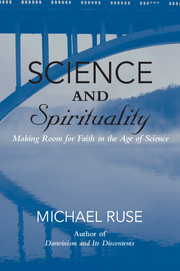Book contents
Five - Unasked Questions, Unsolved Problems
Published online by Cambridge University Press: 05 May 2010
Summary
I have not been writing a general history of Western science since the Greeks. Rather, I have been trying to show the success and triumph of the machine metaphor since the Scientific Revolution in the sixteenth and seventeenth centuries. This is the root metaphor that replaced the earlier root metaphor of the organism. Admittedly, even with this more limited aim, you might question the treatment I have given. What about the gaps? Most obviously, the twentieth century saw many exciting and unexpected advances in the physical as well as other areas of science. Is it enough, for example, to have left physics back at the time of Newton? Should I not have looked at subjects like relativity theory and quantum mechanics? And the answer, of course, is that I might well have looked at such subjects and a great many more, but my suspicion – to be stated and assumed if not really argued for – is that the overall conclusion would not be changed at all. The machine metaphor triumphs.
Certainly there are areas of modern science where this conclusion is indisputable. Take the revolution in geology, with the claims about continental drift powered by plate tectonics (Ruse 1981). Here we have blind laws grinding eternally – the large plates appear from under the sea, move slowly across the surface of the globe carrying the continents on their backs, and then are reabsorbed as they disappear back into the bowels of the earth.
- Type
- Chapter
- Information
- Science and SpiritualityMaking Room for Faith in the Age of Science, pp. 117 - 148Publisher: Cambridge University PressPrint publication year: 2010

